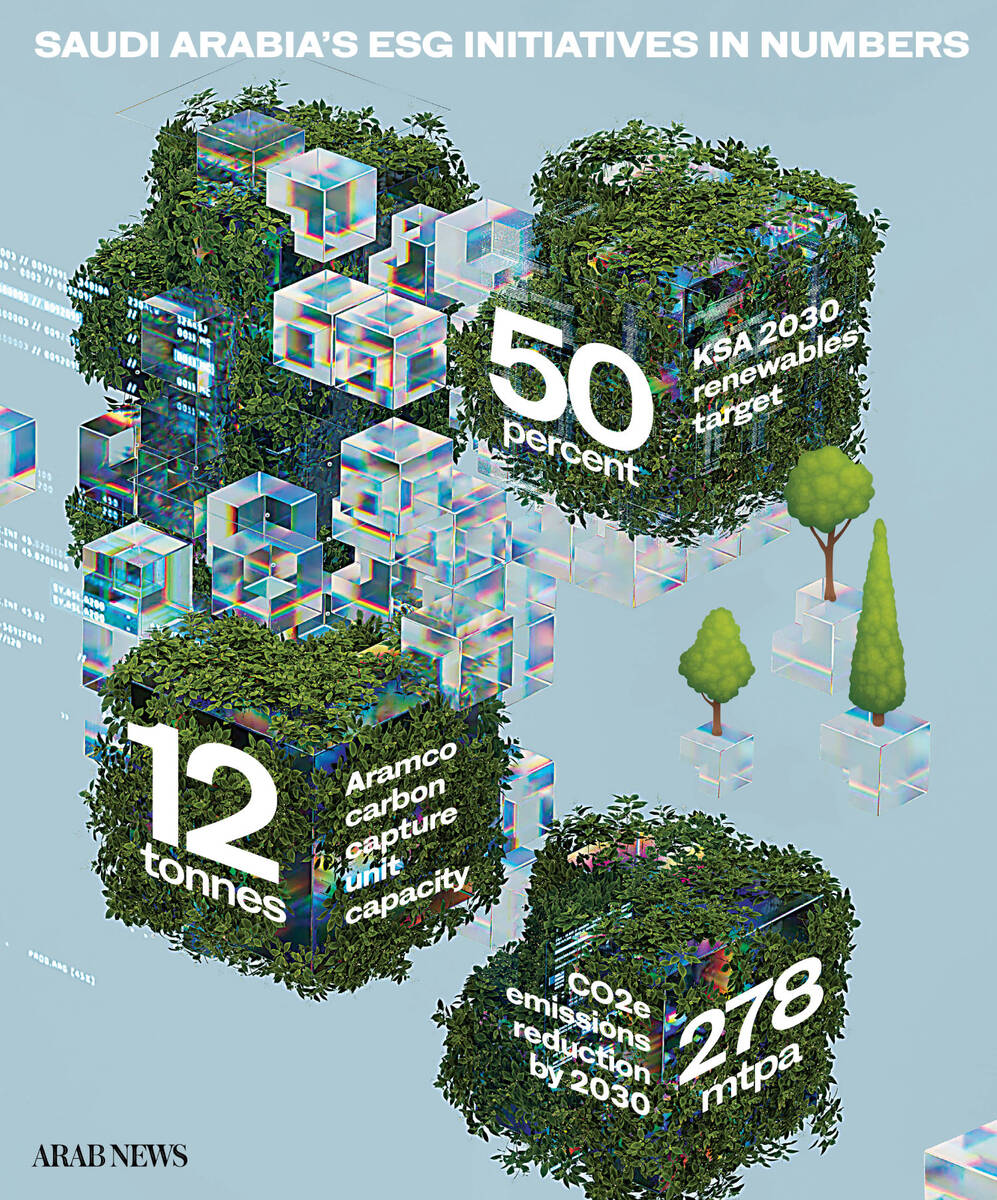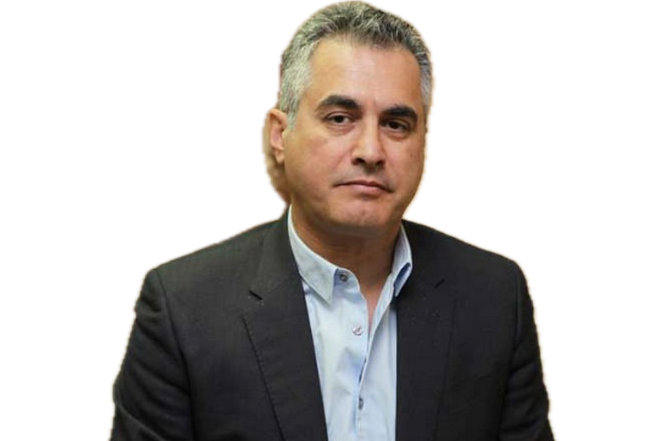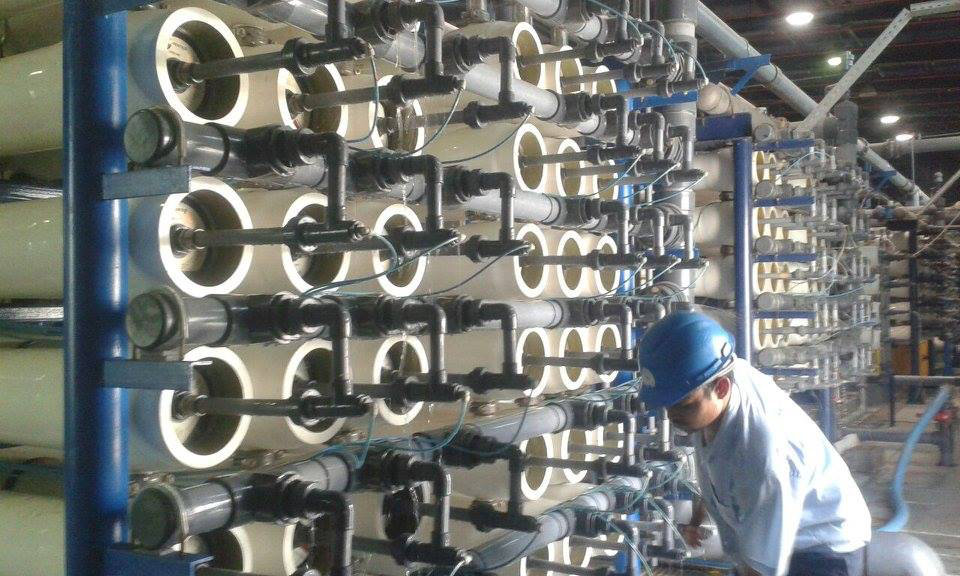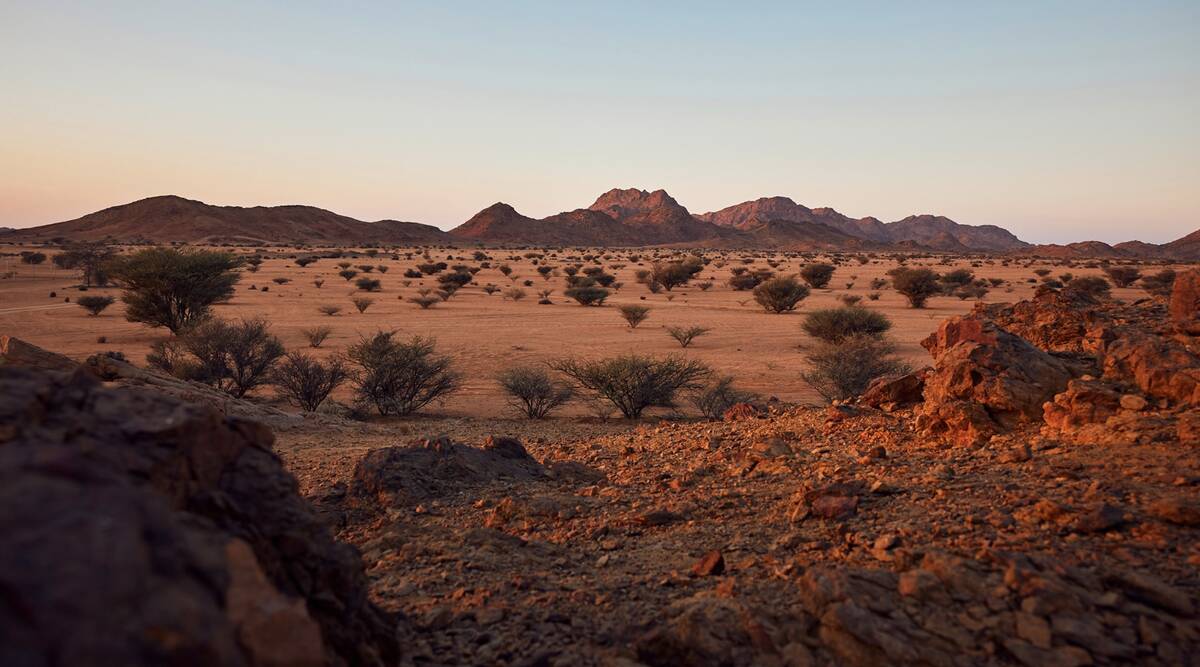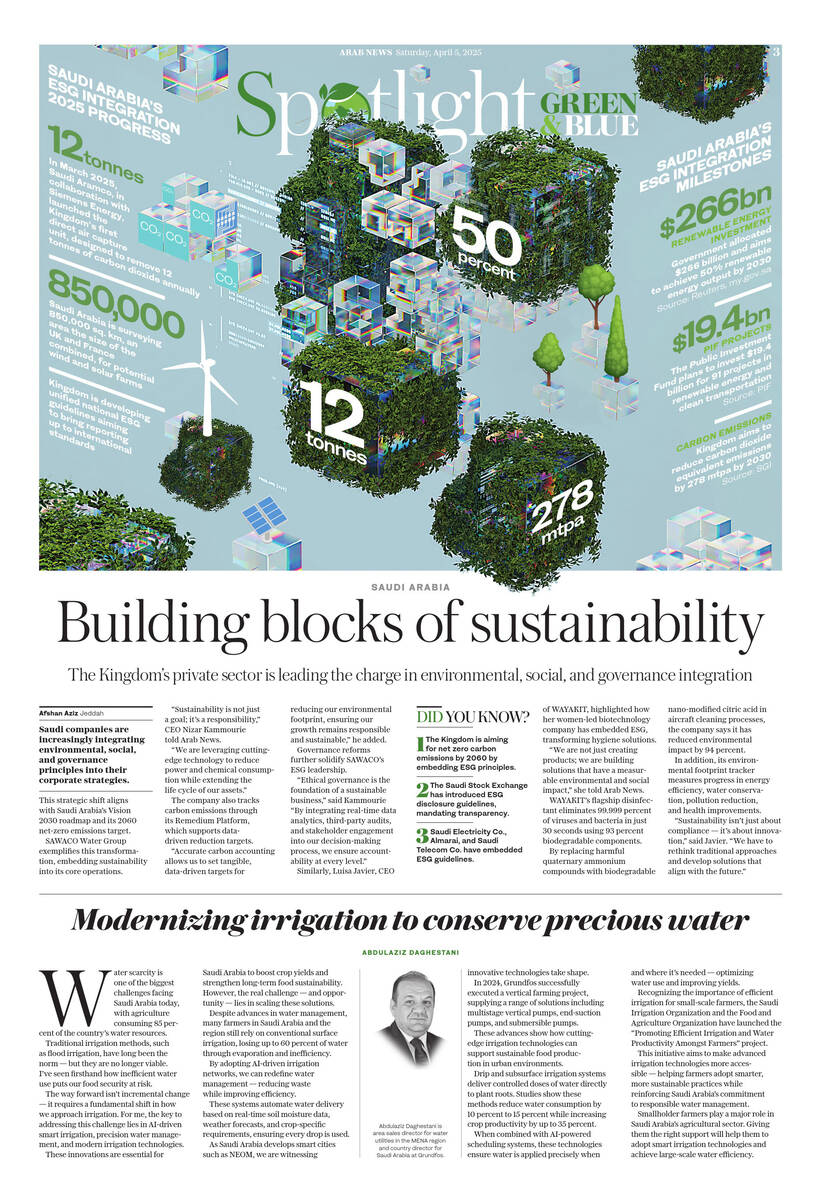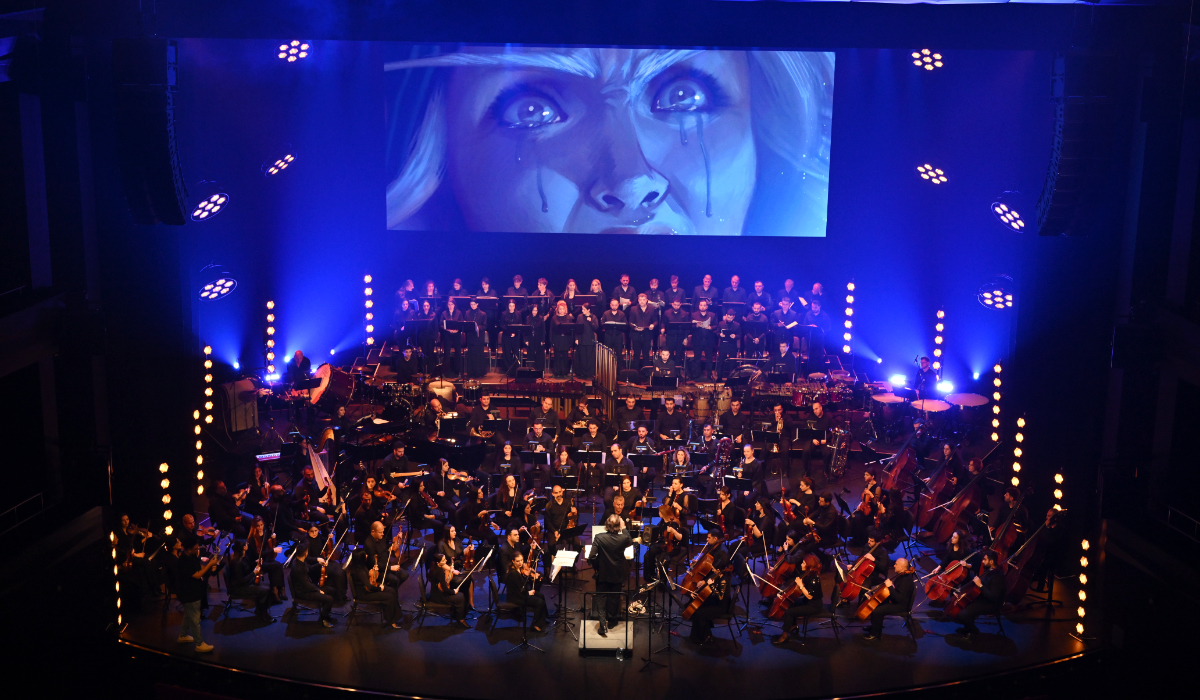RIYADH: Ali Al-Mubarak is a 62-year-old professional photographer who has taken his childhood passion to new heights to find himself atop Saudi Arabia’s most famous skyscrapers, like the Al-Faisaliyah Center and the Kingdom Tower in Riyadh, in a career spanning more than four decades.
He told Arab News how he was hired by Al-Hilal publishing house to document the progress of the center and the tower in the late 1990s.
“At the time, there weren’t many photographers, especially industrial, mainly portraits, event and wedding photographers,” he said. “To be an industrial photographer you have to live like the construction crew, they climb, you climb, they carry their equipment, you carry yours, they get dirty, you get dirty.
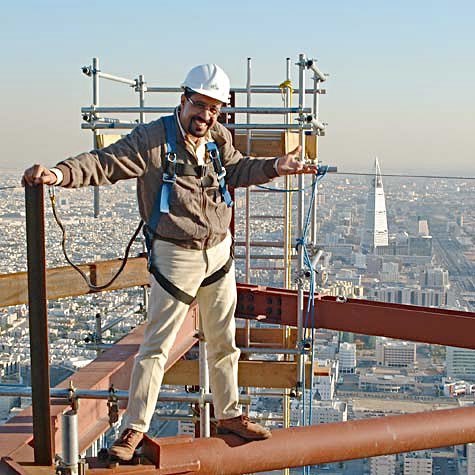
Ali Al-Mubarak, the official photographer for the Kingdom Tower, stands atop the unfinished skyscraper in 1999. (Supplied)
“And so I came every month and would see the changes take effect, up until the opening ceremony. And the heights didn’t scare me, I actually enjoyed it a lot and that’s what scared me: My confidence, any wrong step and I could fall. When I got my picture taken on the construction beam at 200 meters high, I was dancing and the laborer who took my photo was yelling ‘Sir! Please stop.’”
He was also the official photographer for the Royal Commission for Riyadh for 15 years, which was then known as the Riyadh Development Authority.
Although his work has taken him to many places around the world, and he has photographed ministers, grand projects and notable members of society, photography was considered a taboo when he started out in the profession. People thought of it as a necessity, such as when they needed passport photos, but what Al-Mubarak saw was an art form.
“I always loved architecture and I wanted to specialize in photography. Back then, everybody would look at you like you were crazy; it was unheard of to study or take up photography as a profession.”
FASTFACTS
- Ali Al-Mubarak was the official photographer for the Royal Commission for Riyadh for 15 years, which was then known as the Riyadh Development Authority.
- Ali Al-Mubarak told Arab News how he was hired by Al-Hilal publishing house to document the progress of the Al-Faisaliyah Center and the Kingdom Tower in the late 1990s.
But it is nature photography that Al-Mubarak enjoys the most. Were it not for the high demand for commercial photography and the good income from it, the Saudi photographer said that he would spend the rest of his life capturing nature.
Nowadays, anyone with a smartphone can take a photo. But, he said, what separated this from the art form of photography was making the image tell a story.
“Taking an image is very easy, making an image is where the art comes in. Making images requires taking in many factors — the lighting, the composition, color harmony, balance, theme and idea. All this comes together to make a picture last forever.”
Al-Mubarak has had a fascination with film photography since he was a child, asking himself how it went from camera to image, so he joined a photography club in 1982 at the University of Petroleum and Minerals.
“I joined immediately and, from the first day, I asked them all the questions. After I got my answers, I fell in love and saved SR500 ($133 at current rates) and bought my first camera.”
But he left his engineering studies at the university, against his parents’ wishes, to pursue his dreams and found work in an Aramco photography lab while freelancing for Al-Yaum newspaper in Dammam.
“I joined a department which had professional photographers, some were American and some were British. The Saudis there worked in printing and processing films and knew exactly what they were doing. I found myself in heaven.”
Everything about photography intrigued him, from taking the photo to processing and developing it in a lab and seeing the final result. The process, as Al-Mubarak describes it, is meticulous and requires attention to detail as any mistake could result in a poorly finished product.
“The chemicals are very important in processing a photo. The reason some photos would come out very warm or sepia-like is because companies would reuse chemicals after they’ve exhausted them. It’s why if we look at our old family albums or pictures of our parents and grandparents you tend to see those brown photos.
“Because of this, black and white photos were very common; they’re cheap and easy to make while color printing is more expensive, very difficult and highly sophisticated. There’s many aspects to it such as temperature; the wrong temperature — plus or minus a degree — could change the exposure, contrast and color.”
For colored pictures that were printed in some magazines back then, Saudi publishing houses would send their films abroad for processing and development. But this approach was costly and timely. “They would put film rolls in envelopes and send them to the UK. Even Al-Yaum, where Al-Mubarak freelanced, would only produce black and white.
Seeing the lack of colored film photography in the Kingdom, Al-Mubarak decided to make his own lab or dark room at home, purchasing chemicals and equipment that were very expensive. So he sold his car, his only mode of transport, which he had bought for $5,330.
“That may not sound like a lot but when you realize that I did this in the eighties — that price wasn’t considered cheap for a car. Soon after, the only ones printing color in the Kingdom were Aramco, Samir Studio in Dammam, and Ali Al-Mubarak at home.”
While he was at Aramco, he was able to convince the oil giant to grant him a US photography scholarship. He was dispatched to do a two-year diploma, in which he excelled. Impressed by his work ethic, Aramco extended his scholarship to do a bachelor’s degree in California. When he returned to the Kingdom, he embarked on a career path that would capture some of the country’s biggest changes.
Al-Mubarak hopes to work on new and exciting projects like the Burj Salman in Jeddah, set to be the tallest tower in the world when completed. “It would be a dream, I would love to work on it. I hope so.”









